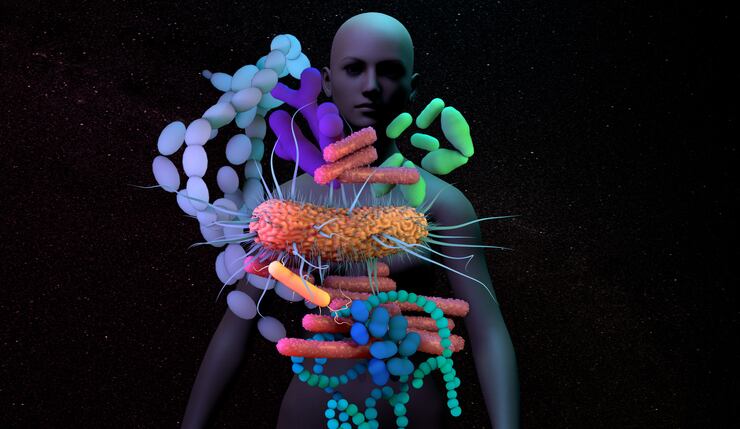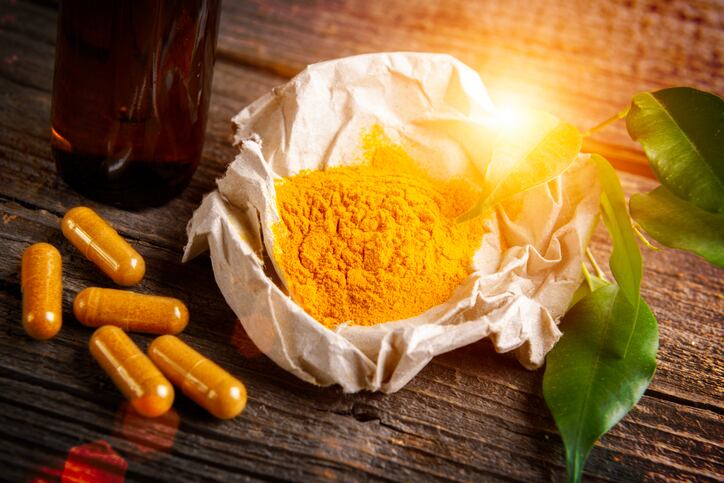The issue was brought up during the final broadcast of APAC’s NutraIngredients Immunity Interactive series, where the topic “Immunity and the microbiome” was discussed. (Listen on demand here)
The panellists included Ewa Hudson, head of market insights at Lumina Intelligence, Dr Chyn Boon Wong, research associate at Morinaga Milk Industry, Dr Aoife Marie Murphy, nutrition business development manager at Kerry, Rebecca Edwards, director of education at Australia firm Activated Probiotics, and Evan Hayes, managing director, Asia Pacific at Factors Group.
The panel discussion was moderated by Gary Scattergood, editor-in-chief of NutraIngredients-Asia.
Probiotics have garnered traction due to growing knowledge on how it could confer benefits beyond gut health. Of particular interest amid the COVID-19 pandemic is its links to immune health.
One of the latest studies showed dysbiosis in the gut microbiome of COVID-19 patients, with a lower abundance of good bacteria even after they were discharged from the hospital.
"We were alarmed to find that even after they have recovered from COVID-19 and are cleared of the virus, patients continue to have persistent microbiota imbalance in the gut and this continued even after days they have discharged.
"Right now, we are following up on some of the cohorts for up to six months, and we found that they continued to have missing good bacteria, and this may partly explain why certain patients continue to have COVID-19 symptoms, known as long-COVID, for up to four to six months after they were infected with the virus," keynote speaker Prof Siew Chien Ng, associate director at the Center for Gut Microbiota Research and professor at the Department of Medicine and Therapeutics at The Chinese University of Hong Kong said.
Amid the advances in probiotic research, the industry is now facing the challenge of communicating the uses and evidence behind probiotics to the consumers and even the healthcare professionals.
"I think the key challenges that the consumers face right now would be the lack of education around how do probiotics actually work.
"There is an extensive gap between what we are researching versus what we are communicating to the public, and that gap and knowledge is bridged by the marketing aspects of the product, such as product shelf stability, CFU, the results of the trials, and not the causality of what actually happened and why did probiotics worked.
"The lack of knowledge and education for the consumers really makes it difficult for them to choose the right type of product for the right effect, and so we really have to care about what we are educating them on - why probiotics work and how they work - so as to demystify certain aspects of probiotics," Hayes said.
Dr Murphy added that consumers and health professionals might not sufficiently understand the diversity and uses of different probiotic strains.
"Many consumers and even health professionals do not understand the concept that there are many different types of probiotic strains with different health benefits associated with them.
“It can be quite difficult to educate them because this is quite a complex subject, but I think with the use of social media, consumer facing websites, these tools can be beneficial,” she said.
Elsewhere in Australia, healthcare professionals seem to have a higher level of understanding and there has been a lot of interest in using specific probiotic strains, Edwards pointed out.
Probiotics, parabiotics, scobiotics
In fact, pre/probiotics are not the only option in modulating the gut microbiome, with parabiotics and scobiotics etc gaining prominence.
One of the companies developing both probiotics and parabiotics ingredients is Morinaga.
In simple terms, probiotics are live bacteria while parabiotics are heat-killed bacteria, and both can confer health benefits when taken in sufficient amounts.
A difference between the two is that parabiotics, being heat-killed, are heat resistant and could be incorporated into more product formats, such as bakery, sauces, on top of beverages and supplements.
From a product development perspective, Dr Murphy also highlighted that there has been a shift towards adding probiotics into coffee, tea, snacks, and bakery.
“There is a lot of interest in adding probiotics to coffee and tea because this is something that consumers take every day,” she said, adding that heat-stable spores-forming probiotics has been one of the options enabling the shift.
In terms of parabiotics, Morinaga has a proprietary strain Lactobacillus paracasei MCC1849, trademarked as LAC-Shield.
A key feature of LAC-Shield is its ability to induce the production of interleukin-12 (IL-12) – an important regulatory cytokine – said Dr Wong.
A study published in 2018 showed that it could improve resistance to common cold infections in susceptible subjects.
On the other hand, scobiotics refers to the combination of prebiotics, yeast, bacteria, short-chain fatty-acids and enzymes. A range of scobiotics has been introduced by Hayes into the Australian market last year.
"I suppose to look at probiotics in isolation of the environment makes it difficult to understand how they work and how they interact with each other.
"We talked about the multibiome and scobiotics - which is a combination of prebiotics, yeast, bacteria, single-cell organisms, and the short-chain fatty acids that they produce with this combination.
"When you look at them in isolation, you get a particular response, but when you look at them as a combination, you get a more natural response, probably something that's more aligned with homeostasis within the body, and those interactions can have profound differences in how those organisms work and react," he said.
Research prospects
There is interest in researching the benefits of probiotics in reducing the number of sick days amongst Australian children who spend their time in childcare centres, said Edwards.
"There is a huge interest here in Australia where we are looking at the paediatric microbiome.
"We have an interesting situation in Australia where children receive antibiotics at more than double the rate of similarly positioned countries in terms of socio-economic status.
"We are still understanding what the long-term impact of these exposures is and we are looking at some longitudinal studies and form an understanding on how exposure to antibiotics at these crucial periods of microbiome maturation and development are very likely to have lifelong implications," she said.
On a consumer level, she said that parents were particularly interested to know if taking probiotics could reduce the number of sick days that their young children have experienced in a daycare setting.
On the other hand, Prof Ng’s team at CUHK is trialling a novel probiotic formula in reducing persisting COVID-19 symptoms in patients who have cleared the virus.
Other research directions include identifying how gut microbes influence COVID-19 severity and how gut microbiota could affect the durability of COVID-19 vaccines.
Country prospects
China remains the largest probiotic consumer market in terms of the number of consumer reviews, while India is an up-and-coming market in terms of probiotics for immune health, according to Lumina – a market insights platform operated by William Reed, the publisher of NutraIngredients-Asia.
In contrast, a handful of SEA markets, such as Indonesia, Malaysia, and even Japan are only in their early adoption for probiotics related to immune health, Hudson pointed out.
While the purchase of probiotics with immune benefits had tailed off by the end of last year, she said that the phenomenon had nonetheless led to a higher consumer interest in probiotics for other purposes.
“Consumers are looking for anecdotal evidence of probiotics and immunity and we also saw an increase in probiotics for inflammatory bowel disease (IBD), irritable bowel syndrome (IBS), and bloating etc.”





